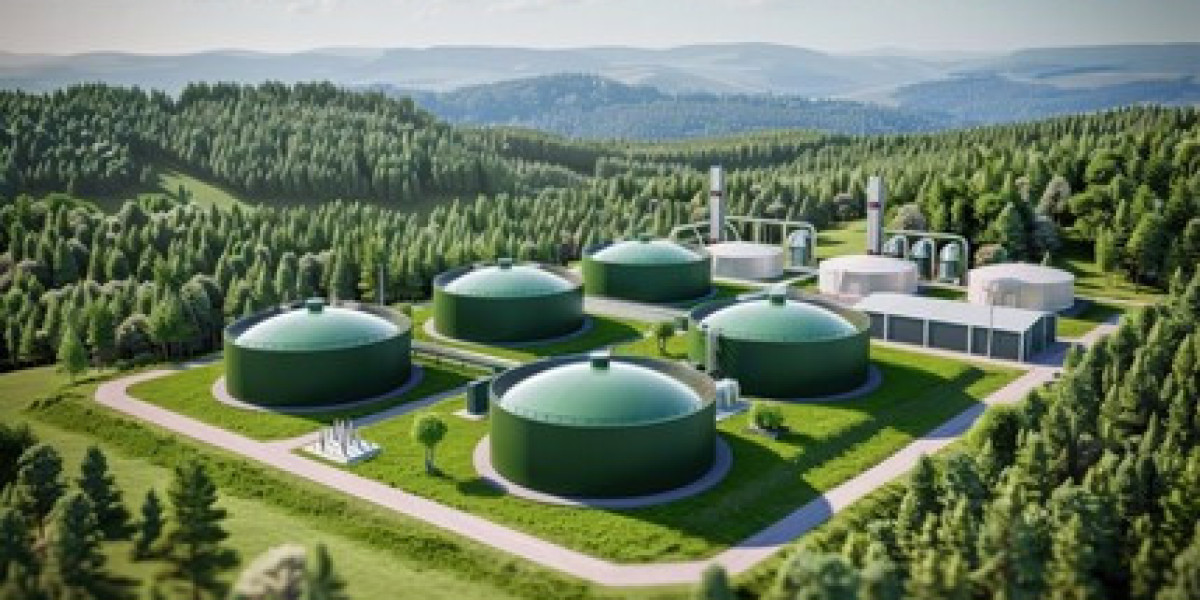Anaerobic digester systems are a transformative waste-to-energy technology in an era of global sustainability. These innovative solutions convert organic waste from industry and households into renewable energy and address the growing volume of organic trash. Anaerobic digester system power these systems to produce methane-based biogas for energy, heating, and vehicles.
Anaerobic digester systems can treat wastewater and industrial process water in addition to producing energy. Anaerobic digesters help create a circular economy by reducing waste quantities and producing nutrient-rich digestate for fertilizer. Anaerobic digester technologies, particularly in industrial settings, are revolutionizing waste management and energy generation in our pursuit of a more sustainable future.
What is an Anaerobic Digester System?
Anaerobic digesters are sealed environments where microorganisms break down organic materials without oxygen. This biological process produces energy-producing biogas, mostly methane and carbon dioxide. The residual material, known as digestate, can be used as a nutrient-rich fertilizer. Anaerobic digestion works well with agricultural wastes, food waste, and industrial effluent. Anaerobic digesters promote sustainability by converting waste into energy and valuable byproducts.
The Importance of Waste-to-Energy Solutions
Waste-to-energy technologies solve worldwide energy and waste management issues. As populations and industries grow, waste production increases. Demand for clean, renewable energy is rising. Anaerobic digesters convert organic waste into biogas, which can power vehicles, and provide heat, and also work for industrial power plants to generate electricity. This approach decreases landfill waste and greenhouse gas emissions.
Benefits of Anaerobic Digester Systems
- Renewable Energy Production
One of the most significant benefits of anaerobic digester systems is their capacity to produce renewable energy. You can use anaerobic digestion biogas in many ways:
- Electricity Generation: Burning biogas in a generator generates power. Businesses can sell this electricity to the grid or use it on-site.
- Heat Production: The heat generated during the combustion of biogas can be exploited for heating purposes, such as warming buildings or providing hot water for industrial activities.
- Fuel: Using biogas to make biomethane, a clean fuel for vehicles, promotes transportation sustainability.
- Reduce Waste
Anaerobic digestion considerably lowers landfill trash. Anaerobic digesters reduce waste by 90% by breaking down organic stuff. Waste reduction saves landfill space and reduces environmental impact.
- Rich Fertilizer Production
Anaerobic digesters create nutrient-rich digestate. Agriculture can use this digestate as fertilizer to replenish soil nutrients.
- Using digestate as fertilizer decreases the demand for environmentally hazardous synthetic fertilizers. Managing nutrients sustainably improves soil health and lowers chemical runoff into waterways.
- Recycling and Treating Water
In industrial contexts, anaerobic digester systems recycle and treat water efficiently. It treats wastewater from many sources, including:
- Agricultural Operations: Anaerobic digesters reduce odours and infections while generating electricity from livestock manure.
- Food and beverage businesses: It creates a lot of organic waste and process water that anaerobic digestion can handle.
Anaerobic digestion works on process water treatment and enhances water recycling and environmental impact.
- Wastewater Treatment Efficiency Improvement
Anaerobic Digester System improves wastewater treatment efficiency. Anaerobic digestion reduces wastewater's organic content, making treatment easier. This efficiency increases water quality and minimizes energy needs for further treatment. Wastewater treatment for industrial processes has become more sustainable and cost-effective.
- Lower Greenhouse Gas Emissions
Anaerobic digesters reduce waste disposal greenhouse gas emissions. Landfilling produces methane, a strong greenhouse gas that contributes to climate change.
These devices capture and use anaerobic digestion of methane to avoid its release. Biogas as a renewable energy source minimizes fossil fuel use and emissions.
- Economic Gains
Businesses and communities can profit economically from anaerobic digester systems. The systems can:
- Reduce Energy Costs: Businesses can reduce energy costs and become less dependent on external energy sources by generating their energy.
- Generate Jobs: The installation and operation of anaerobic digesters can provide jobs in numerous areas, including construction, maintenance, and energy generation.
- Expand Market: Anaerobic digestion businesses can market themselves as ecologically friendly and sustainable to a growing eco-conscious consumer base.
- Application Versatility
Anaerobic digester systems are adaptable to many sectors. Key sectors benefiting from anaerobic digestion:
- Agriculture: Anaerobic digesters produce energy and organic fertilizers from manure and crop wastes.
- Food Processing: Treatment of food waste reduces waste volumes and generates energy.
- Waste Management: Anaerobic digestion systems can manage organic waste and produce biogas for local energy needs in municipalities.
- Sustainability and Community Engagement
Anaerobic digester systems promote sustainability in communities. Communities may minimize garbage, generate renewable energy, and enhance the environment by supporting waste-to-energy solutions.
- Educational and outreach campaigns can promote sustainability and accountability through anaerobic digestion awareness.
Real-World Examples of Anaerobic Digester Systems in Action
- Anaerobic Digestion in Agriculture
Milk digesters are a common example of anaerobic digestion in agriculture. These systems turn livestock waste into energy-producing biogas. High-quality digestate enriches the soil and promotes sustainable farming.
- Food Processing Industry
Unilever uses anaerobic digesters to manage organic waste from food processing. By turning garbage into biogas, they minimize waste and generate sustainable energy, demonstrating the benefits of anaerobic digestion in industry.
- Municipal Waste Control
San Francisco and other cities are using anaerobic digestion to control organic garbage. These cities produce nutrient-rich fertilizers for local crops by processing food scraps and yard waste to reduce landfill waste and generate renewable energy.
Conclusion
Anaerobic digester systems are a potent solution for sustainable waste management and renewable energy generation. They produce energy, recycle nutrients, and dispose of organic waste by converting it into biogas.
Final Thoughts
We supply wastewater treatment plants and recognize the value of anaerobic digestion in industrial water treatment and process optimization. These solutions assist businesses and communities boost sustainability, reducing their environmental effect, and greening the future. In agriculture and urban waste management, anaerobic digesters are adaptable and effective. Anaerobic digestion can make trash a resource in a more sustainable and resilient environment. This technique creates efficient, low-maintenance power plants with several benefits. Still, it's a proven, energy-saving industrial waste management technology.
Finally, we promise to develop and implement low-cost, low-chemical waste solutions. Anaerobic digestion reduces greenhouse gas emissions by recovering waste methane. Construction and operation vary by waste stream. WOG Group aims to provide wastewater treatment plant solutions for all aspects. We want more efficient use of natural resources, particularly water.






